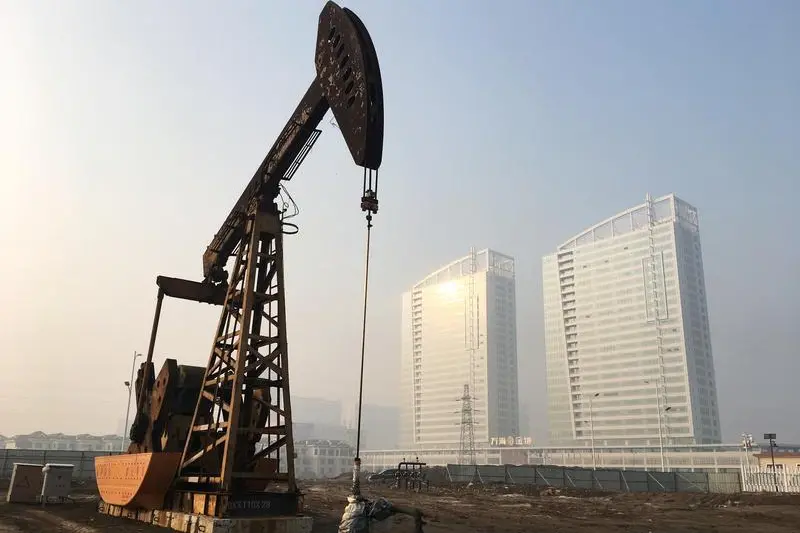PHOTO
(John Kemp is a Reuters market analyst. The views expressed are his own)
LONDON- Hedge funds were heavy sellers of petroleum last week for the third time in four weeks, amid mounting anxiety about the impact of a coronavirus outbreak on oil consumption in China.
Hedge funds and other money managers sold the equivalent of 131 million barrels in the six most important futures and options contracts in the week ending Feb. 4.
Portfolio managers have sold a total of 367 million barrels since Jan. 7, reversing a large amount of the 533 million barrels bought during the previous 13 weeks.
Fears about a coronavirus-driven downturn in oil consumption have replaced earlier expectations about a cyclical recovery in oil demand growth.
Selling has been concentrated in crude and the middle distillates used heavily in manufacturing and transportation, including aviation and shipping, the sectors most exposed to China’s economy and the coronavirus.
Hedge funds were heavy sellers last week of NYMEX and ICE WTI (-56 million barrels), Brent (-50 million), European gasoil (-18 million) and U.S. heating oil (-8 million).
In response to the coronavirus, PetroChina has said that it will cut crude processing at its refineries by 320,000 barrels per day in February, around 10% of its average production rate, with even deeper cuts to come in March.
China’s state-owned refiners have now signalled production cuts totalling more than 900,000 bpd this month.
By contrast, fund managers made no net change in their position in U.S. gasoline last week, which is more focused on the United States and private motorists.
SEVERE RECESSION
The economic and oil market impact of the virus outbreak is similar to a severe recession centred on China, which is currently extremely deep but of uncertain duration, and where the full impact on other countries is unclear.
Normal recessions are driven by economic processes, including inventory adjustments, consumer and business confidence, and labour market dynamics (“Narrative economics”, Shiller, 2017).
Even in normal times, recessions have much in common with epidemics as narratives about a deteriorating business environment and increasing risk spread among households and businesses, causing them to reduce spending.
But the coronavirus-recession in China is additionally driven by the success of primary infection control in Hubei province; the probability of secondary outbreaks in the rest of China and worldwide; and decisions by governments, businesses and individuals about the optimal trade-off between the need for infection control and the need to keep normal commercial activities operating.
If the virus can be successfully contained while business activity is normalised, the coronavirus-induced recession could be very short, albeit severe, and localised mostly in China, though with impacts on the country’s supply chain.
China’s government and businesses have started signalling a gradual normalisation of commercial and transportation activities after a two-week long extended holiday intended to slow the rate of virus transmission.
However, if there are uncontained secondary outbreaks across the rest of China forcing an extended suspension of normal business activity, the recession could be much longer, with an inevitable worldwide effect.
And if the virus cannot be contained within China, governments and businesses will face an even more uncomfortable choice about how to manage the trade-off between risks to human health and the need to maintain semi-normal operations.
(Editing by Kirsten Donovan) ((john.kemp@thomsonreuters.com and on twitter @JKempEnergy))





















